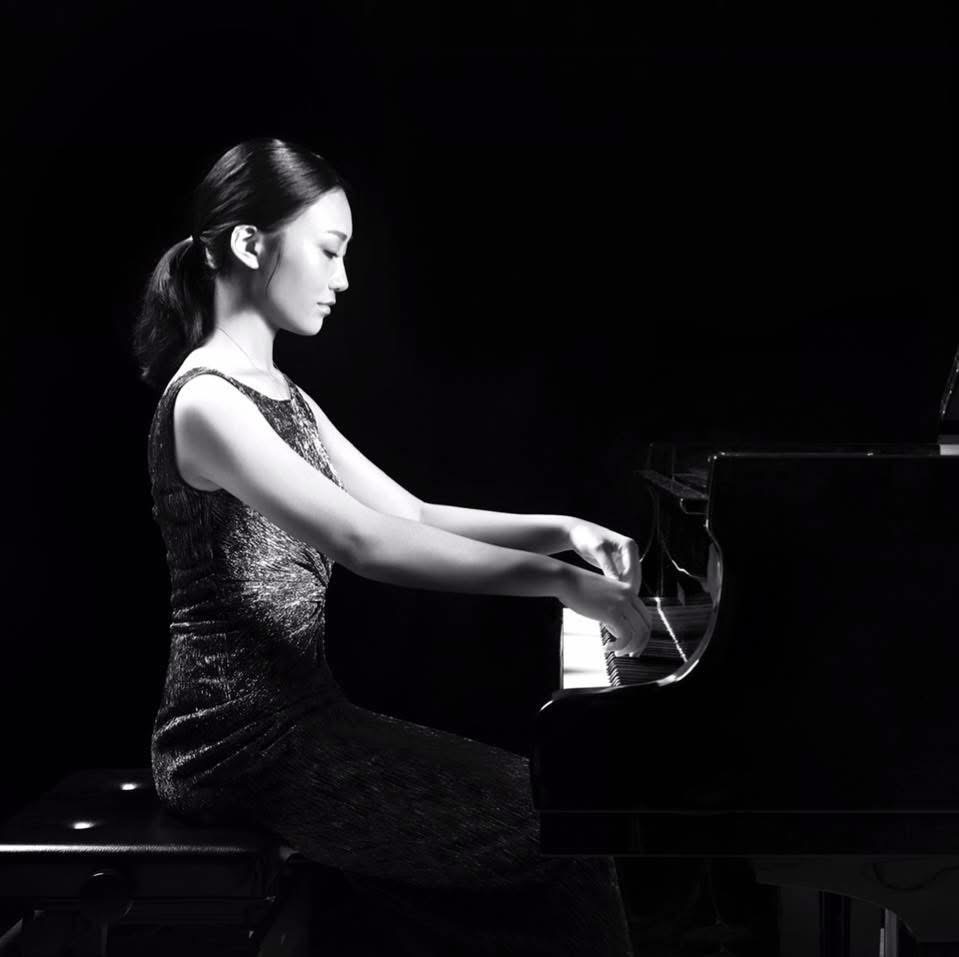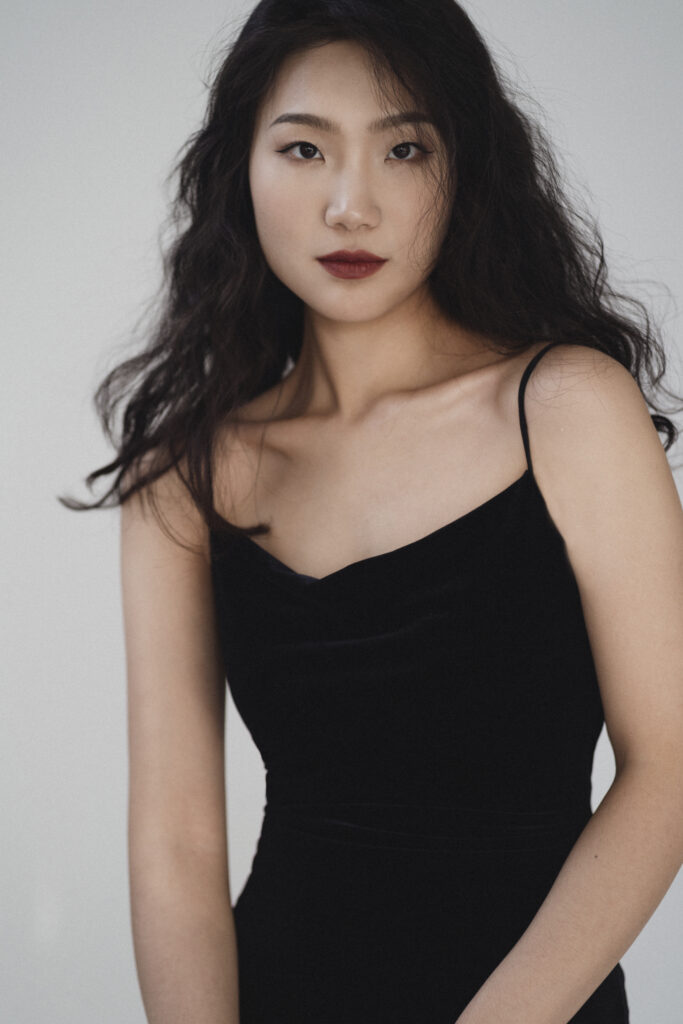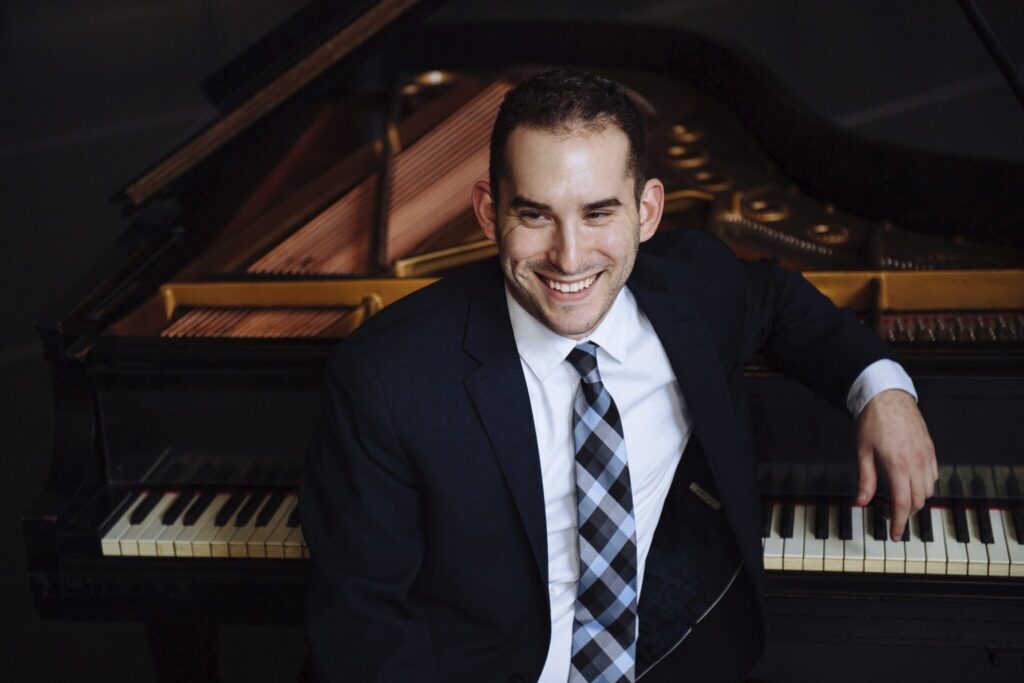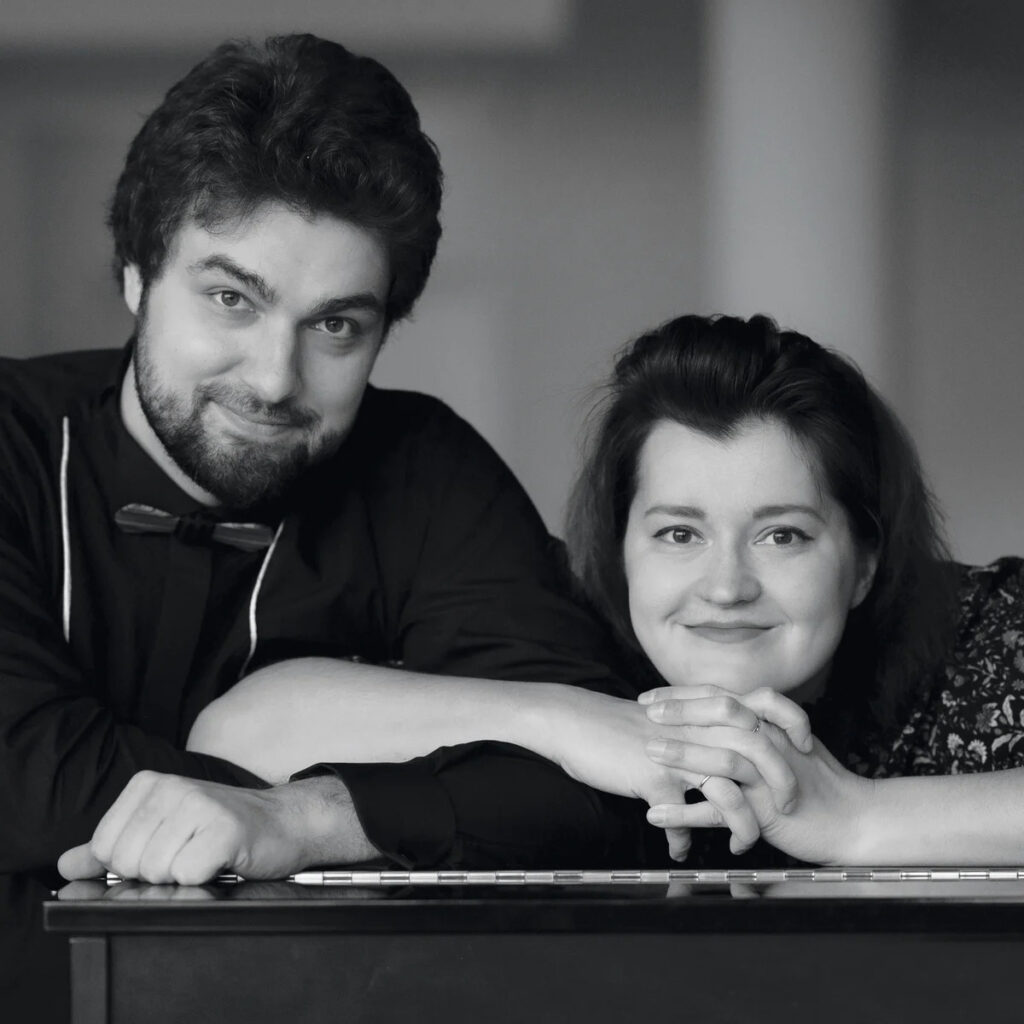In preparation for its 50th anniversary celebrations next spring, the Gina Bachauer International Piano Foundation has invited four Bachauer laureates for this season’s concert series, including two gold medalists, the most recent bronze medalist from last year’s international artist competition, and the fifth prize winner from the 2012 young artists competition.
Opening the season on Sept. 26 at 7:30 p.m. in the Jeanné Wagner Theatre at the Rose Wagner Center for Performing Arts will be Winona Yinuo Wang, the bronze medalist, in a program she has titled Adrift, featuring music by Rachmaninoff, Schubert, Janáček, Prokofiev and Zhang Zhao.
A graduate of Central Conservatory of Music in Beijing who is pursuing the Artist Diploma at Juilliard, Wang performed Rachmaninoff’s Second Piano Concerto, one of the most beloved and familiar for music lovers, on the final evening of last year’s competition with the Utah Symphony. As noted by The Utah Review at the time, “with each movement, she opened up her playing and sound, finding the right resonance with the orchestral accompaniment. The third movement was unquestionably her strongest.”
In an interview with The Utah Review, Wang said her upcoming Adrift concert was conceived specifically with her experience at Bachauer in mind, along with the journey her musical career has taken in the 15 months since then. Recalling the warmth with which she received during the competition in Salt Lake City, she talked about how grateful she felt about her host, Marilyn Smolka, during her stay. Wang recalled how emotionally taken her host felt when she was rehearsing two pieces that were part of her quarterfinal programs: Schumann’s Sonata No. 1 in F-sharp minor, Op. 11, most notable for its slow movement, which was based on an unpublished song (To Anna) the composer wrote in his teens and Rachmaninoff’s Daisies, Op. 38, no. 3 (which Wang also will play for her Adrift concert).
“Marilyn, with tears in her eyes, was holding her cat and she said this is what it must feel like to be in heaven.” Wang said that experiences like this are why she has organized a project to bring music directly to people who are homebound and are unable to go out in public to engage in music performances.
Ahead of an upcoming tour in various international destinations, Wang said Adrift is exclusively for Bachauer audiences. In addition to Daisies, she will perform Rachmaninoff’s Lilacs, op. 21, no. 5, as part of her opener. Although Lilacs was composed 14 years earlier than Daisies, both songs are typically performed together. They have taken on bittersweet nostalgia, especially as Rachmaninoff would leave Russia in 1917, never to return to his homeland.
Wang will follow with two works by the Chinese composer Zhang Zhao, which echo her memories of her formative years in China and the time she spent with her grandmother who loved to watch Peking Opera on television. “My parents would send me every weekend to stay with my grandmother,” Wang said, “and while I was too young to appreciate Peking Opera, I was trying to be a good and polite kid.”
When she heard Zhao’s solo piano work Pi Huang, which the composer finalized in 2007, she said, “The piece rang a bell for me. I remembered the smell of the ribs my grandma was cooking and it brought back a sweet part of my childhood memory.” Zhao, who fused Chinese elements with compositional techniques associated with Debussy and Ravel, incorporated Peking Opera rhythm and structure variations and the elements of the sound effects of different instruments in the Peking Opera orchestra. The coda expresses the heroic sentiment described in the poem Ode to the Plum Blossom, especially in the verse reading, “Her petals may be ground in the mud, but her fragrance will endure.”
The other Zhao work scheduled is his arrangement of the Kangding Love Song, one of the most familiar folk songs in China, which originated in Kangding, located in the Sichuan Province.
She will close out the first half with a performance of Schubert’s Fantasy in C Major, D. 760 (Wanderer). “The story about being lost and searching for the place where we belong is very meaningful to me, especially when I think about the competition experience last year and my host.”
Adrift will take on an entirely different meaning after the intermission. As soothing and comforting as the first half will be for audiences, Wang has selected a pair of works for the second half that are much more visceral, as both composers reflected on tense, harsh realities that parallel the dynamics of contemporary times.
The first comes from Janáček’s Sonata 1.X.1905 (From The Street), a work not found frequently on piano recital programs. The sonata’s title refers to the date of a demonstration at a Czech-speaking university in Brno, when skirmishes erupted between the German majority residents and the Czech minority residents of the city. František Pavlík, a Moravian carpenter, was killed by a bayonet unleashed by forces of the ruling imperial government of the Habsburgs. The work is dark and intense, as indicated by the two movements: Foreboding (Předtucha) and Death (Smrt). Tony Chen Lin relates the story of its tempestuous premiere and Janáček’s extraordinary act during its performance:
On the day of the premiere while the pianist Ludmila Tučková was playing through the work to Janáček, the fiercely self-critical composer grew despondent and in a fit of self-doubt tore out the last movement, a funeral march, and threw it into the fire right before the pianist’s eyes. The concert went ahead, albeit with just the two-movement torso. Still dissatisfied, Janáček tossed the entire manuscript of the remaining work in the river Vltava. “And it floated along on the water that day, like white swans,” he later recalled, laden with remorse for his rash act. It wasn’t until 1924, almost twenty years later, that Tučková was able to pluck up the courage and confess to the seventy-year-old composer that she had made a copy of the two-movement Sonata. Remembering it with excitement, Janáček sanctioned its publication. Like its violent history, this searing work has the power even today to disturb and shock
Wang will close out the program with a blockbuster of 20th century solo piano literature: Prokofiev’s Sonata No. 7 in B-flat Major, op. 83. It is the shortest one in the trio of the composer’s “war sonatas,” No. 7 is the composer’s best-known piano sonata, with its famous first movement, marked as Allegro inquieto, followed by a cantabile middle movement and the machine stomping of the final movement. Sviatoslav Richter premiered the work in Moscow in January 1943. He later recalled: “The audience clearly grasped the spirit of the work, which reflected their innermost feelings and concern…With this work, we are brutally plunged into the anxiously threatening atmosphere of a world that has lost its balance. Chaos and uncertainty reign. We see murderous forces unleashed. But this does not mean that what we lived by before thereby ceases to exist. We continue to feel and to love. Now the full range of human emotions bursts forth. In the tremendous struggle that this involves, we find the strength to affirm the irrepressible life-force.”
The season lineup of Bachauer laureates will whet appetites for the foundation’s next competition which will coincide with the 50th anniversary year. The junior and young artists competitions, with pianists ranging in age from 11 to 18, will be held June 14-27, 2026 in Salt Lake City. Competitors for the culminating rounds will be selected from preliminary rounds that will be held in Hamburg, New York City, Shanghai, Seoul and Salt Lake City.
In an interview with The Utah Review, Douglas Humpherys, Bachauer’s first gold medalist who serves as the foundation’s artistic director and is professor of piano at the Eastman School of Music in Rochester, mentioned that the current generation of young pianists, all of whom have spent their lives entirely within the 21st century, are already playing at “extraordinarily high levels.” He added that audiences could expect to hear plenty of pianists in their early- and mid-teens “who will knock them out of their seats.”
If one needed evidence to confirm that many young people are still excited to pursue their dreams of becoming outstanding pianists in the world of classical music, the breadth and depth of talent represented in preliminary applications for the competition already confirm this. Likewise, in addition to Wang, the Bachauer laureates slated for the remainder of the season can testify to how their formative experiences as piano students opened the gates to their exciting careers.
Remainder of the 2025-2026 season
With his program Passages on Nov. 14, Arthur Greene, who was the 1978 Bachauer gold medalist, features four of the greatest titans in keyboard literature: Bach, Beethoven, Chopin and Liszt.
A member of the piano faculty of the University of Michigan and New York City, he received degrees from Yale, Juilliard, and Stony Brook. Until recent events, he spent summers with his extended family in Ukraine.
He has performed with the Philadelphia Orchestra, the San Francisco, Utah, and National Symphonies, the Ukraine National Symphony, the Czech National Symphony, the Tokyo Symphony, and many others. He has played recitals in Carnegie Hall, the Kennedy Center, Moscow Rachmaninov Hall, Tokyo Bunka Kaikan, Lisbon Sao Paulo Opera House, Hong Kong City Hall and concert houses in Shanghai, Beijing, and Seoul, and all the major cities in Japan. He was an artistic ambassador to Serbia, Kosovo, and Bosnia for the United States Information Agency.
Greene has recorded the complete Etudes of Alexander Scriabin for Supraphon, and piano works of the Ukrainian composer Mykola Lysenko for Toccata Classics. He has made many recordings together with his wife, the violinist Solomia Soroka, for Naxos and Toccata. He has performed the 10 Sonata Cycle of Alexander Scriabin in many important international venues, including multi-media presentations with Symbolist artworks.
Arthur Greene is a member of the piano faculty of the University of Michigan. There he has won the Harold Haugh Award for Excellence in Studio Teaching.
A recipient of the 2022 Avery Fisher Career Grant, Mackenzie Melemed, 30, will bring an unprecedented exclusive focus on piano music by American composers in his March 13 offering, Americana. This includes works by Aaron Copland, Amy Beach, Arthur Foote. Edward MacDowell, Louis Moreau-Gottschalk, Florence Price and Ned Rorem, as well as commissions from contemporary composers Laura Kaminsky, and Avner Dorman
Melemed took fifth prize in the 2012 Bachauer young artists competition. Even earlier, by the age of 30, he already had more than 500 public performances to his credit. Born in Massachusetts, Melemed began piano studies at age four, and soon after was performing weekly for senior citizens. At the age of five, he made a national appearance on The RosieO’Donnell Show, and by nine, he was headlining a 60-show run at the Tropicana Resort in Atlantic City, New Jersey. From nine to thirteen, he was invited annually to perform at the White House during the Holiday Open House celebrations—experiences that proved instrumental in shaping his identity as a performer.
Melemed’s artistry goes beyond performance, combining music and storytelling into memorable experiences for both newcomers and seasoned listeners. Through thoughtfully curated programs that blend familiar works with rare discoveries, he creates intimate connections with audiences, sharing insights that illuminate the music. His vision extends beyond the concert hall: he aims to spark curiosity for lesser-known composers while inspiring future pianists to explore uncharted repertoire, gradually expanding what we consider essential to the classical canon.
Melemed was the only pianist to receive a 2022 Avery Fisher Career Grant—one of the highest honors bestowed upon young American classical musicians; presented by Lincoln Center, Avery Fisher Career Grants are awarded to American instrumentalists with the largest prospects for a major solo career. He has performed as soloist with the Philadelphia Orchestra, the Helsinki Philharmonic, the Edmonton Symphony, the Polish Radio Orchestra, and other prominent ensembles, and has appeared in recital at Carnegie Hall’s Weill Recital Hall, as well as at major venues and festivals across North America, Europe, and Asia.
Since 2020, Melemed has lived in Finland. His success following the 2017 Maj Lind Piano Competition, coupled with his fluency in Finnish from Columbia University language courses, launched his successful performance career with invitations to perform with nearly all of Finland’s orchestras and at major music festivals.
The concert season will close with an April 13 piano duo concert, featuring Russian-Lithuanian pianists Lukas Geniušas and Anna Geniushene, in a blockbuster cosmopolitan program featuring music by Rachmaninoff, Copland, John Adams and Colin McPhee.
Geniušas won the gold medal in Bachauer’s 2010 international artists competition and is a laureate of the Chopin and Tchaikovsky Competitions. His recent recording of Rachmaninov’s original First Piano Sonata earned accolades from BBC Music, Gramophone, Diapason, and Classica. Geniushene rose to international prominence as silver medalist of the 2022 Van Cliburn International Piano Competition. Since then, she has debuted at the Kennedy Center, Wiener Konzerthaus, and Tonhalle Zurich, and has collaborated with the Taipei and Lithuanian Symphony Orchestras.
Born just a year apart in Moscow and now based in Lithuania, the pianists balance vibrant international careers with their family life, raising their two young sons and continuing to perform as a duo and as soloists.
For tickets and more information about the season, see the Bachauer website.





